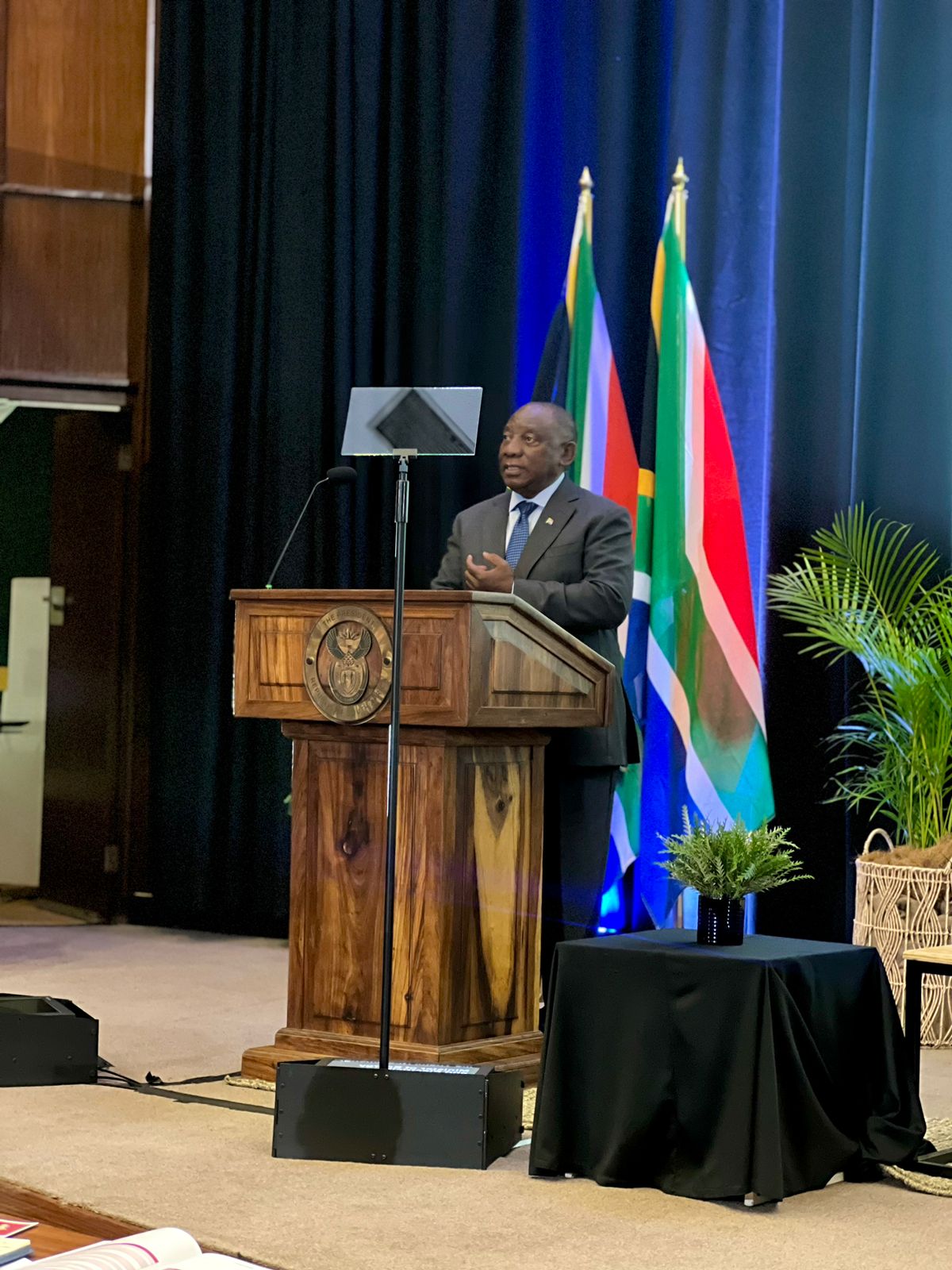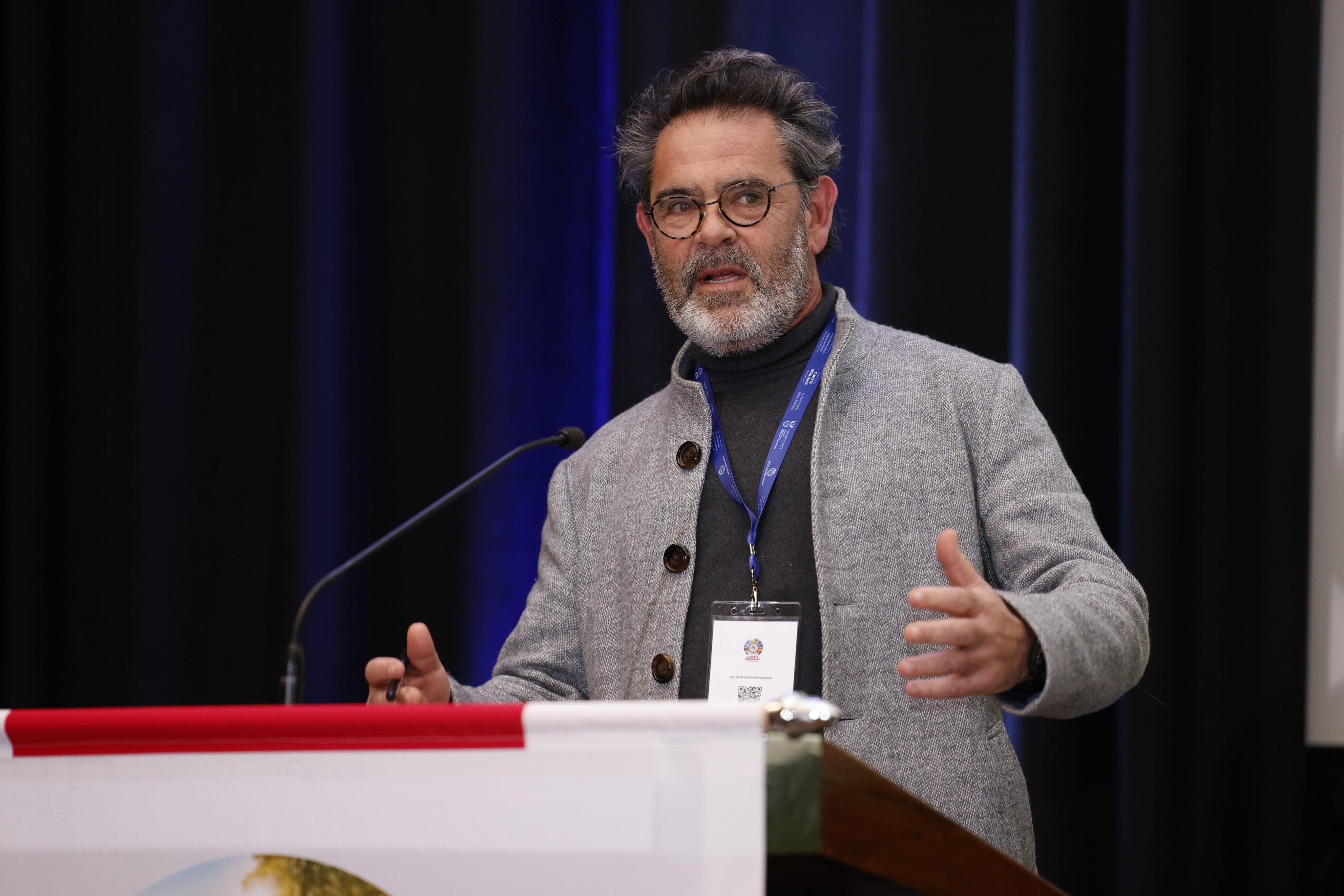News
Catalysing climate resilience – insights from the National Treasury Climate Resilience Symposium
The National Treasury Climate Resilience Symposium, held in Pretoria from 15–17 July 2024, marked a key moment in South Africa's journey toward sustainable development. The symposium brought together a diverse range of stakeholders, including policymakers, scientists, business leaders, and youth activists to discuss the theme, ‘Moving the Needle on Climate Change and Just Transition’. President Cyril Ramaphosa set the tone with a keynote address, where he emphasized the urgency of integrating climate objectives into macro-fiscal and finance policies. He highlighted that climate change is not merely an environmental issue, but a critical economic and social challenge that impacts every aspect of life. The President underscored the necessity of evidence-based policymaking supported by robust scientific and economic research to effectively address the climate crisis.

President Cyril Ramaphosa speaks at the National Treasury Climate Symposium
Francois Engelbrecht from the Global Change Institute provided a sobering overview of future climate scenarios for Southern Africa, based on his research commissioned by the SA-TIED programme. His projections emphasized the increasing frequency and intensity of extreme weather events, highlighting the need for adaptive and resilient infrastructure. These insights laid the groundwork for understanding the need for comprehensive climate action and informed the subsequent discussions on infrastructure investment and sustainable development.
Discussions at the symposium also investigated the macro-fiscal risks posed by climate change. The economic impacts, revenue risks, and expenditure pressures resulting from climate change were examined, underlining the need for effective policy responses to manage these risks and ensure fiscal stability. The SA-TIED programme's research on the economic impacts of climate change provided a foundation for these discussions, highlighting the importance of diversifying revenue bases and integrating climate risks into fiscal planning.The symposium also explored the transformative potential of modelling in achieving sustainable development. Antoine Godin’s presentation on strong sustainability highlighted the necessity of preserving natural resources as irreplaceable assets and emphasized integrating ecological, social, economic, and financial aspects to drive a just ecological transition.
The SA-TIED programme’s modelling session, featuring Bruno Merven, who spoke to the SATIMGE model, demonstrated the value of integrated modelling approaches. This session unpacked the collaborative work SA-TIED is facilitated to develop a hybrid climate-economy model suitable for South Africa. South Africa's commitment to international climate agreements and the need for transparent and accountable climate finance mechanisms were emphasized throughout the symposium. The progress on the climate budget tagging system, which aims to improve transparency on public climate flows, was highlighted as an instrument of the National Treasury. This system is crucial for tracking climate-related expenditures and ensuring that funds are used effectively to support climate resilience efforts.
The role of carbon pricing as a key mitigation policy was a focal point of the discussions. The implementation of carbon tax in South Africa was emphasized as a vital component of the country’s mitigation strategy to lower greenhouse gas emissions. The symposium explored the development of a credible, well-functioning carbon credit market to reduce the cost of climate-resilient assets. Aligning with the new Article 6 mechanism under the Paris Agreement, the discussions underscored the importance of enhancing carbon markets to stimulate low-carbon investments.
International measures like the European Union’s Carbon Border Adjustment Mechanism (CBAM) were also addressed. These mechanisms, which aim to prevent carbon leakage, have significant impacts on South Africa's trade and economy. The need for strategic responses to such international policies was discussed, emphasizing the importance of maintaining competitiveness while advancing climate goals.Youth involvement and climate justice were prominent themes throughout the symposium. Panel discussions emphasized the proactive stance of young people in shaping climate policy and their desire to be directly involved in decision-making processes. Financing climate action was a recurrent theme. The SA-TIED programme's research agenda was outlined by Mark Swilling highlighting the investment requirements for water, energy and food investments for a sustainable future. Discussions on blended finance and de-risking instruments highlighted the need to mobilize private capital for development projects. The panel on blended finance explored strategies to leverage public finance to attract private investments, particularly in high-risk sectors.

Mark Swilling speaks about the investment requirements for water, energy and food investments
The symposium concluded with closing remarks by Duncan Pieterse, Director-General of the National Treasury. He emphasized the importance of maintaining strong links between science and policymaking to support an evidence-based approach. Pieterse highlighted the necessity of scaling and improving the quality of finance for a just transition, particularly for municipalities and state-owned enterprises.The National Treasury Climate Resilience Symposium was a landmark event that catalyzed action and collaboration on climate resilience in South Africa. The insights gained and connections made during the symposium will undoubtedly propel us toward a more resilient and sustainable future. The SA-TIED programme remains committed to supporting evidence-based policymaking and fostering partnerships that drive meaningful change.
 Join the network
Join the network